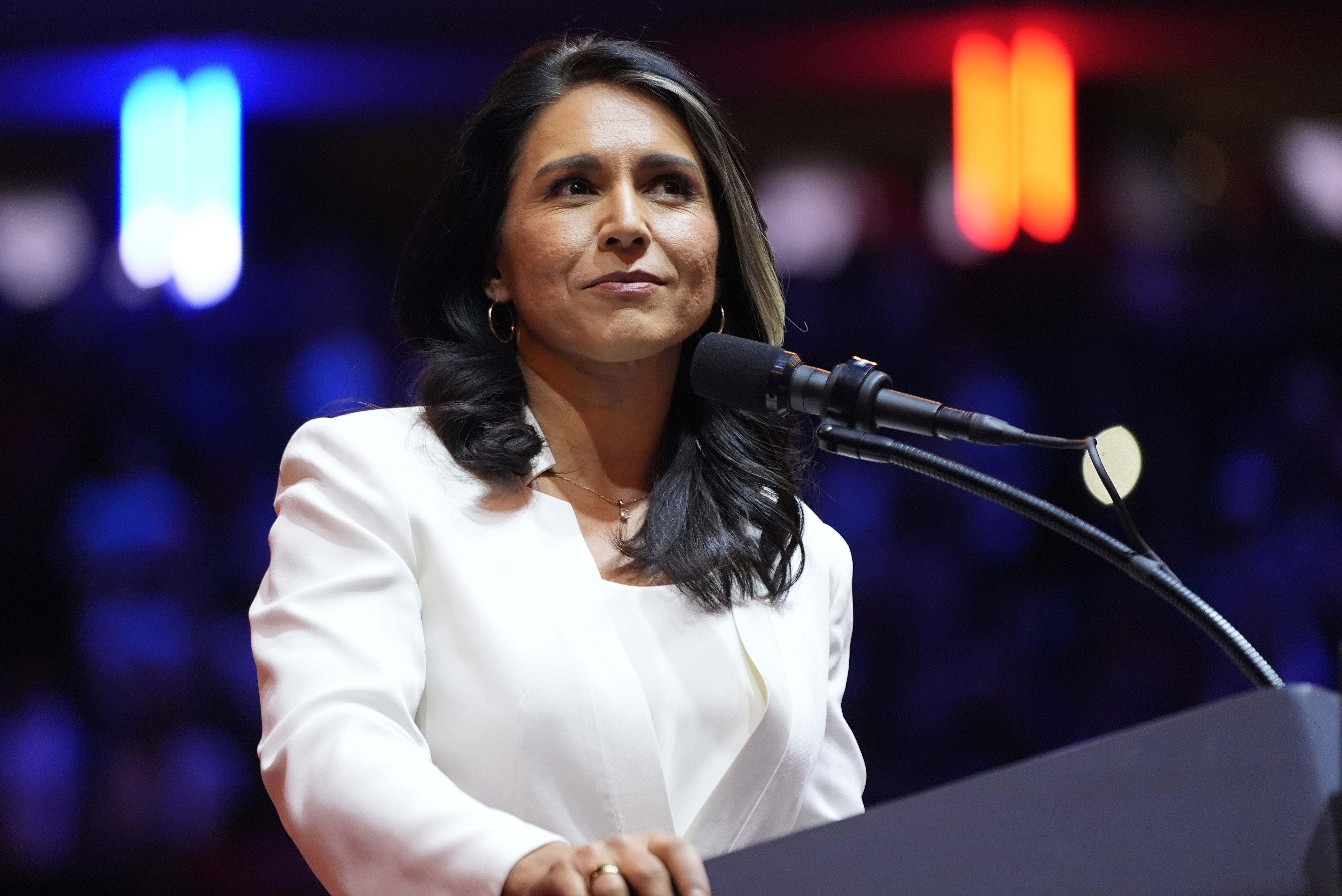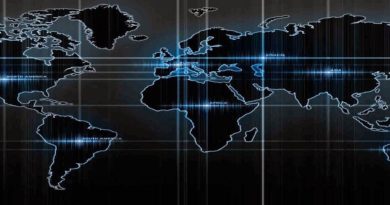The Russian guide to Trump’s Cabinet picks

Russian officials and media outlets have been closely watching President-elect Donald Trump’s Cabinet picks, meticulously tracking the nominees’ positions on military aid to Ukraine and opinions of President Vladimir Putin, in hopes of predicting the policies of a president who is famously unpredictable.
Officially, the Kremlin has taken a rather cool, wait-and-see approach to Trump’s victory, weighing whether he would stick to his more conciliatory pre-election campaign rhetoric or be beholden to a largely anti-Russian security establishment.
But in state media, there has been close scrutiny and sharp opinions of the picks. Vladimir Solovyov, one of the loudest propagandists on Russian state television, has even launched a hashtag “D Team,” where D stands for Donald, on his Telegram channel, inviting his 1.3 million followers to track the nominations.
The conclusion so far is a mixed bag from the Russian perspective, ranging from director of national intelligence pick Tulsi Gabbard, who has been sympathetic to Moscow for years, to the choice for national security adviser, Michael Waltz, who calls for finding leverage to bring Putin to the negotiating table.
Pro-Kremlin commentators painted some appointments as cautiously optimistic for Russia, hoping that the Republicans will eventually follow through on what they see as a “pragmatic” resolution to the war in Ukraine: forcing Kyiv into a peace settlement and turning to domestic issues.
“Somewhere in a Kyiv bunker a former comedian is quietly whimpering,” said an op-ed published by state-run news agency RIA Novosti, referring to President Volodymyr Zelensky’s past as a TV personality. “But if the show that is unfolding will remain just a show, we will say ‘thanks for the popcorn’ and move on.”
1. Tulsi Gabbard, director of national intelligence
Gabbard’s planned appointment as the head of national intelligence elicited the most excitement in Russia because she has been long regarded as a darling of the propagandist Russian RT network, which amplified her sympathetic takes on Syrian leader Bashar al-Assad and Putin.
Following the announcement, the newspaper Komsomolskaya Pravda published an op-ed titled “The CIA and FBI are trembling: why Trump protégé Tulsi Gabbard will support Russia as head of National Intelligence.”
Authors of the piece, who referred to the former U.S. Representative as “an audacious brunette beauty,” highlighted that she “exclusively blames the White House for the conflict in Ukraine and she is sympathetic to Russian President Vladimir Putin.”
“Tulsi has a theory: the Democrats staged a provocation in Ukraine and began to demonize Russia in order to prevent Trump from becoming president,” the article stated.
Oleg Tsarev, a former pro-Moscow Ukrainian politician who now lives in Russia, called her appointment “an encouraging decision,” citing her recent remarks that Vice President Kamala Harris was a “main instigator” in the Ukraine war by suggesting a few days before the invasion that Ukraine should become a member of NATO.
Gabbard also posted a video saying the United States was operating 25 to 30 biological research labs in Ukraine and accused the Biden administration of covering them up, a debunked conspiracy theory that the Russian Defense Ministry has been pushing for years.
2. Keith Kellogg, special envoy for Ukraine and Russia
Trump’s selection of a new envoy to lead negotiations for ending the war in Ukraine has been met with a lukewarm reaction in Moscow.
Sergei Markov, a Kremlin-connected political analyst, suggested that Moscow sees Kellogg as likely to follow in the footsteps of Kurt Volker, Trump’s Ukraine envoy during his first term and widely unpopular in Russia.
“There is no particular hope for General Kellogg in Russia, he is probably the same corrupt Deep State functionary as Kurt Volker,” Markov wrote in his Telegram blog, adding that Volker “betrayed” Trump and pursued and anti-Russia policy that led to war.
Russian media have highlighted to Kellogg’s previous remarks, including his comment that both Hitler and Napoleon struggled to defeat Russia — interpreted as a warning about the difficulties of a ground war against the country.
Other analysts have been scrutinizing Kellogg’s peace plan, which calls for a quick cease-fire and negotiated settlement, implying territorial concessions.
Kellogg proposed tying U.S. aid to Kyiv’s participation in peace talks, while threatening to give Ukraine “everything it needs to kill [Putin] in the field” if Moscow refuses to negotiate. The plan also suggests Russia might engage in talks if the United States delayed Ukraine’s NATO membership for an extended period — which at least, said commentators, recognizes Russia’s concern over NATO.
“At first glance, this ‘plan’ doesn’t seem to promise an easier six months for Russia,” said Maxim Suchkov, a Russian political scientist. “We hope Trump wants peace, but his version of peace is ‘America First.’ That means peace on U.S. terms — not Russia’s.”
3. Marco Rubio, secretary of state
Zvezda TV, a channel funded by the Defense Ministry, highlighted Rubio’s opposition to continued Ukraine aid, which “made the authorities in Kyiv feel sick to their stomach.” In 2022, Rubio voted in favor of a Ukraine aid package but has since reversed his position, with Russian commentators noting the change in his track record when it comes to the war.
Other pundits, however, view Rubio as a hawk with a stance on Russia that is more aggressive than that of the incoming president. News outlets recalled that the senator introduced multiple bills devising punitive measures against Russia, including tougher financial and personal sanctions against members of the government elite, and he called Putin a “thug.”
In 2022, Rubio met with Leonid Volkov, a close ally of late opposition leader and Putin’s nemesis Alexei Navalny, to discuss sanctions lists against Moscow.
Pro-Kremlin blogger Oleg Yasinsky called Rubio “an outspoken American Cold War imperialist” who considers Russia and its allies Iran and China direct enemies of the United States.
4. Michael Waltz, national security adviser
Along with Rubio, Waltz’s planned nomination for a key security position is among the most concerning picks for Moscow, where the congressman is viewed as a hawk intent on ending the war in Ukraine by “restoring deterrence.”
On one hand, there have been his remarks about the need to bring the war “to a responsible end” and his opposition to additional support for Ukraine that have been played extensively in Russian news.
But his overall criticism of Moscow, calling Russia “a gas station with nukes,” pushing for stricter enforcement of energy sanctions and talking about the need to “stop Putin” added to Moscow’s concerns that Trump’s presidency may not yield much gain for the Kremlin.
Even more alarming to Russian watchers was Waltz’s comment that he met with Biden’s national security adviser, Jake Sullivan, to discuss matters like Ukraine and that the two “are one team” in the transition.
5. Pete Hegseth, defense secretary
Hegseth’s background as a Fox News presenter has been a source of mockery among Russian pundits, who saw this pick as Trump’s attempt to “troll the American deep state.”
An op-ed on the RT state network written by prominent Russian military blogger Ilya Mersh, known as Starshe Eddy, described Hegseth as “an eccentric character” whose grand plan to overhaul the U.S. military from the top down, including by removing “woke” generals and eliminating the Pentagon’s diversity efforts, will probably drown in “administrative frictions.”
“This will take a few years … and there won’t be much time left for actual preparation and conduct of wars,” the column said, adding that Moscow hopes Trump will make good on his promise to focus on domestic affairs.
6. John Ratcliffe, CIA director
Russian commentators focused on Ratcliffe’s time as director of national intelligence in the first Trump administration and his determination to declassify reports that he said proved that Russian interference in the 2020 election was a hoax, a narrative the Kremlin welcomed.
“According to Donald Trump, it was Ratcliffe who exposed Hillary Clinton’s lie that Russia interfered in the 2016 election,” read a summary on Solovyov’s Telegram channel. The post also focused on Ratcliffe repeatedly sounding the alarm about China being the chief U.S. adversary in the long run.
Other outlets, however, noted that he criticized the Biden administration for what he saw as its weak response to Russia’s invasion.
7. Scott Bessent, treasury secretary
Russian business outlets warned that Trump’s choice of hedge fund manager Scott Bessent for Treasury would fall in line with what Moscow has traditionally seen since the annexation of Crimea in 2014 — sanctions after sanctions.
In an interview with Barrons, Bessent said the U.S. response to the Ukraine war has been weak. Bessent dismissed the idea of making Ukraine a NATO member as “neocon stuff” but added that it should be immediately made an E.U. member and that the West should “fortify Poland like crazy.”
For Russia, this Cabinet position is key because one of Putin’s goals in any negotiations on a Ukraine peace deal is lifting some of the sanctions imposed on the country since 2022, especially as the Russian economy shows signs of overheating and rampant inflation.
“Bessent’s position on sanctions, Russia and Ukraine is a good illustration of the different views that dominate the future Trump administration, which are not entirely favorable to Moscow,” said independent business daily the Bell. “And it is further confirmation that if a good deal on Ukraine cannot be reached, there is a good chance that U.S. policy toward Russia will not soften, but harden, as eventually happened during Trump’s first presidency.”
Pro-Kremlin commentators noted that Bessent used to work for billionaire businessman George Soros, a central figure in Russia-promoted conspiracy theories that claim the businessman and his associates secretly control the U.S. government.
![The Financial Jigsaw Part 2 (47) – THE RULING ELITE – Faith & Reason – FSD – Ukraine SitRep – UK High St, Decline – UK News Flash – Global South Challenge – Who is Kier Starmer? – [06-07-25] The Financial Jigsaw Part 2 (47) – THE RULING ELITE – Faith & Reason – FSD – Ukraine SitRep – UK High St, Decline – UK News Flash – Global South Challenge – Who is Kier Starmer? – [06-07-25]](https://wp.fifu.app/conspiracyresource.com/aHR0cHM6Ly9zdWJzdGFja2Nkbi5jb20vaW1hZ2UvZmV0Y2gvd18xNDU2LGNfbGltaXQsZl9hdXRvLHFfYXV0bzpnb29kLGZsX3Byb2dyZXNzaXZlOnN0ZWVwL2h0dHBzJTNBJTJGJTJGc3Vic3RhY2stcG9zdC1tZWRpYS5zMy5hbWF6b25hd3MuY29tJTJGcHVibGljJTJGaW1hZ2VzJTJGYWQzMmI2ZjktOTg2ZC00MjJhLTlhN2MtZjI4NTgwZWZlNWQzXzk4NHg1NTIucG5n/9c1878938158/the-financial-jigsaw-part-2-47-the-ruling-elite-faith-reason-fsd-ukraine-sitrep-uk-high-st-decline-uk-news-flash-global-s.webp?w=390&h=205&c=0&p=502592)

